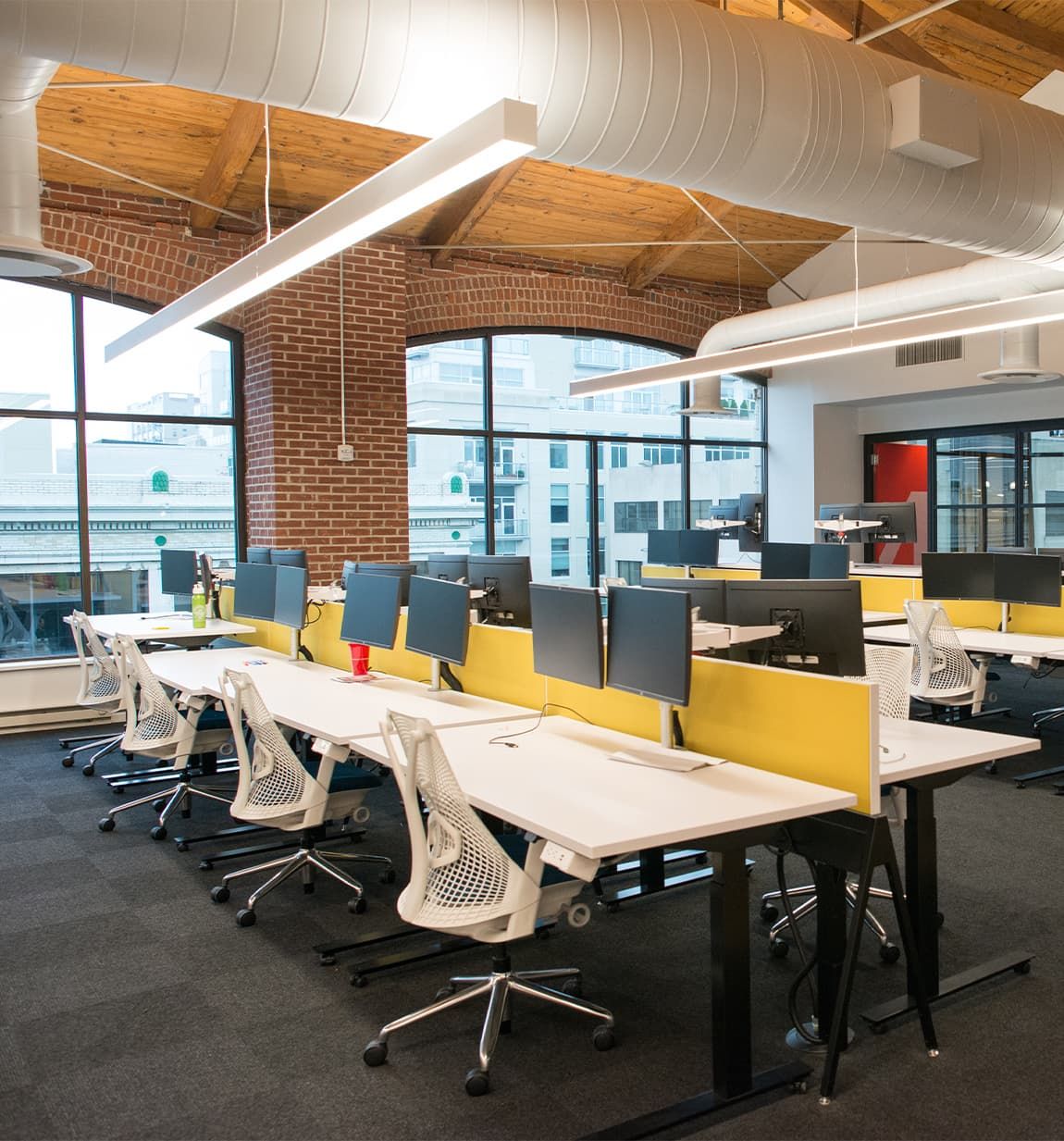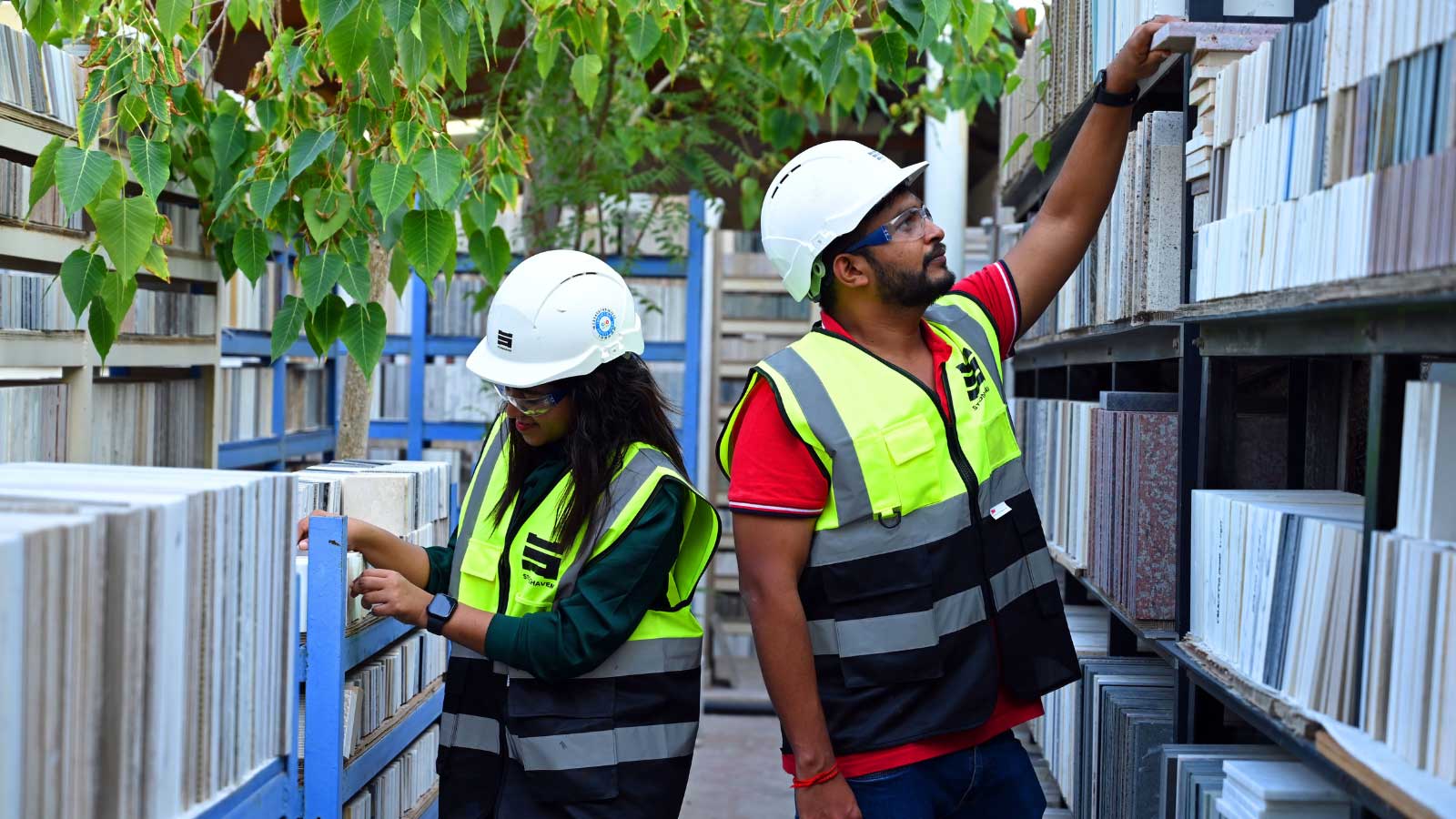In the fast-paced world of construction, procurement is the cornerstone of delivering projects on time and within budget. It involves more than just sourcing materials and hiring subcontractors—construction procurement is a strategic function that has a direct impact on cost management, supplier relationships, and overall project success. With new technological trends, increasing focus on sustainability, and ongoing global supply chain challenges, the role of procurement in construction has become even more critical.
This comprehensive blog explores how construction procurement services shape the success of projects focusing on cost management, the role of the procurement manager, key benefits, challenges, and the growing importance of sustainability and digital tools.
What is Construction Procurement Management?
Construction procurement management refers to the strategic process of acquiring all the materials, equipment, labour, and services required to successfully complete a construction project. It's much more than simply buying supplies—it involves careful planning, budgeting, negotiating, and managing supplier relationships to ensure that all resources are delivered on time, within budget, and to the required quality standards.
McKinsey’s report on ‘The strategic era of procurement in construction’ shows that strategic construction procurement, including practices like bulk purchasing, long-term contracts with suppliers, and the use of predictive analytics, can reduce overall project costs by 12% to 15%. This is achieved by locking in prices early, avoiding price fluctuations, and building solid supplier relationships.
In construction, procurement management is crucial because it directly impacts the project’s timelines, costs, and overall success.
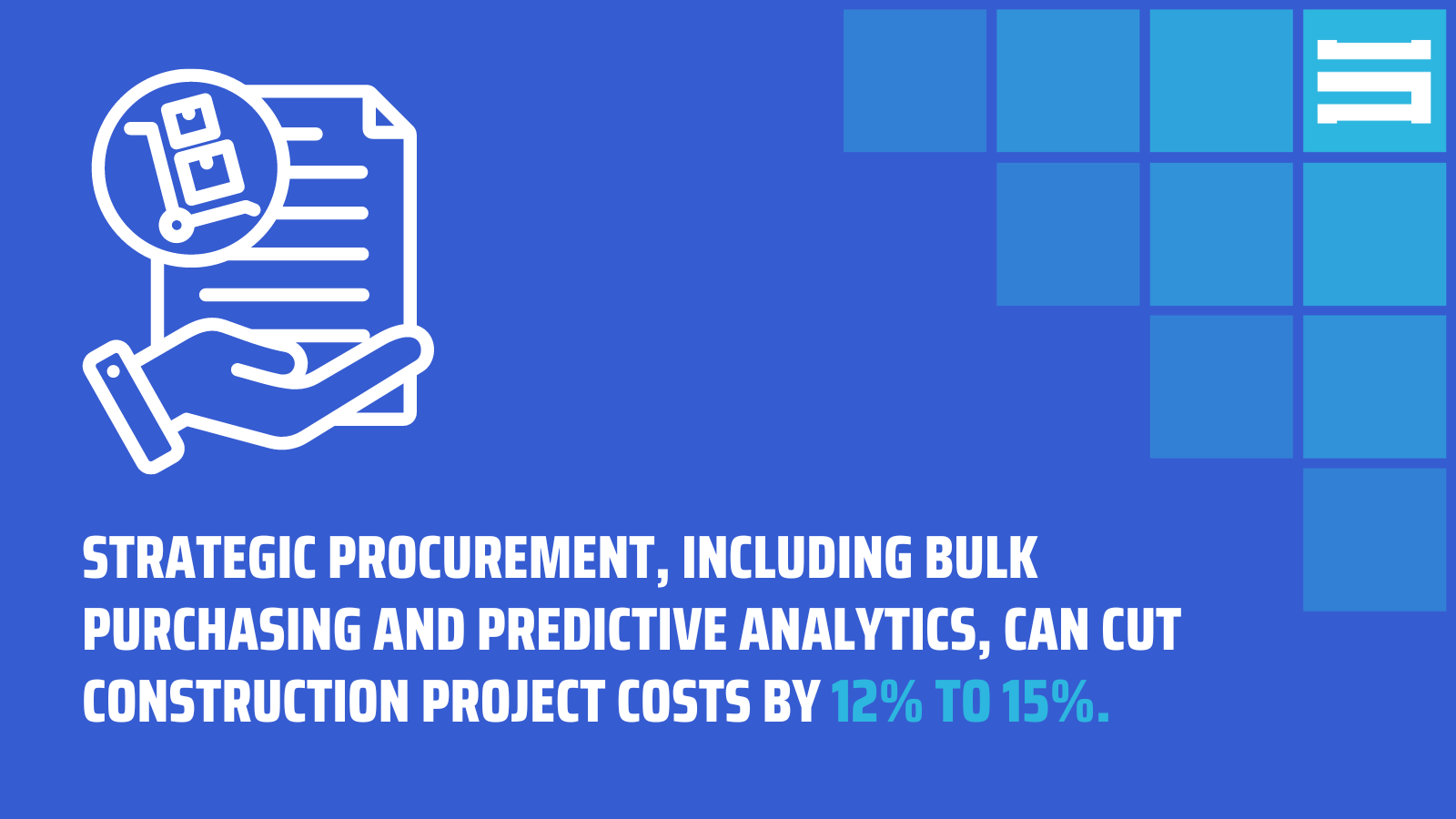
The Importance of Construction Procurement Management
Let’s be real: construction procurement management is one of the most important pieces in getting your project done right. It’s not just about finding the right materials or suppliers—it's about making sure everything comes together smoothly on time, and within budget.
Here’s why nailing procurement is so essential:
1. Cost Control: Keep Your Budget in Check
A good procurement manager knows how to forecast costs and lock in better deals with suppliers. That means no surprises when it comes to your budget. By negotiating better terms upfront, you avoid those nasty cost overruns that can totally blow your project’s finances.
2. Timely Delivery: No More Waiting Around
Delays can kill a project’s momentum, and if your materials or services show up late, you're stuck. Good procurement management ensures everything arrives when it should, keeping the project timeline moving and preventing delays that could hike up your costs.
3. Quality Assurance: Avoid Expensive Rework
You don’t want to cut corners on quality. Working with reliable suppliers means you’re getting high-quality materials and services that meet your standards, reducing the risk of project failures or costly rework down the line. Nothing derails a project faster than having to fix problems that should have been caught upfront.
4. Sustainability: Do Good for the Future
Sustainability is a big deal right now, and it's not going away. Aligning with eco-friendly practices not only helps you meet environmental regulations, but it also boosts your company’s reputation. Plus, you’ll feel good knowing you’re reducing waste and making a positive impact.
5. Risk Reduction: No More Surprises
Anticipating potential risks is what separates great procurement managers from the rest. By proactively managing supplier relationships and planning for hiccups, they can minimise disruptions and keep your project running smoothly. It’s all about being prepared for the unexpected and having backup plans in place.
In short, construction procurement management is your secret weapon for a successful project. It keeps your costs down, your timeline on track, your materials up to par, and your risks low. And in today’s world, it’s about being sustainable too. Nail procurement, and the rest of the project falls into place.
Why is Construction Procurement the Backbone of Cost Management?
The report from McKinsey noted that in construction, given that procurement accounts for 40 to 70 percent of a construction company's total spending, the role of procurement management in balancing design cost with CO₂ emissions becomes vital. Cost managers are positioned to make informed decisions that weigh upfront costs against lifecycle savings, ensuring that sustainable materials and practices do not lead to unmanageable project overruns.
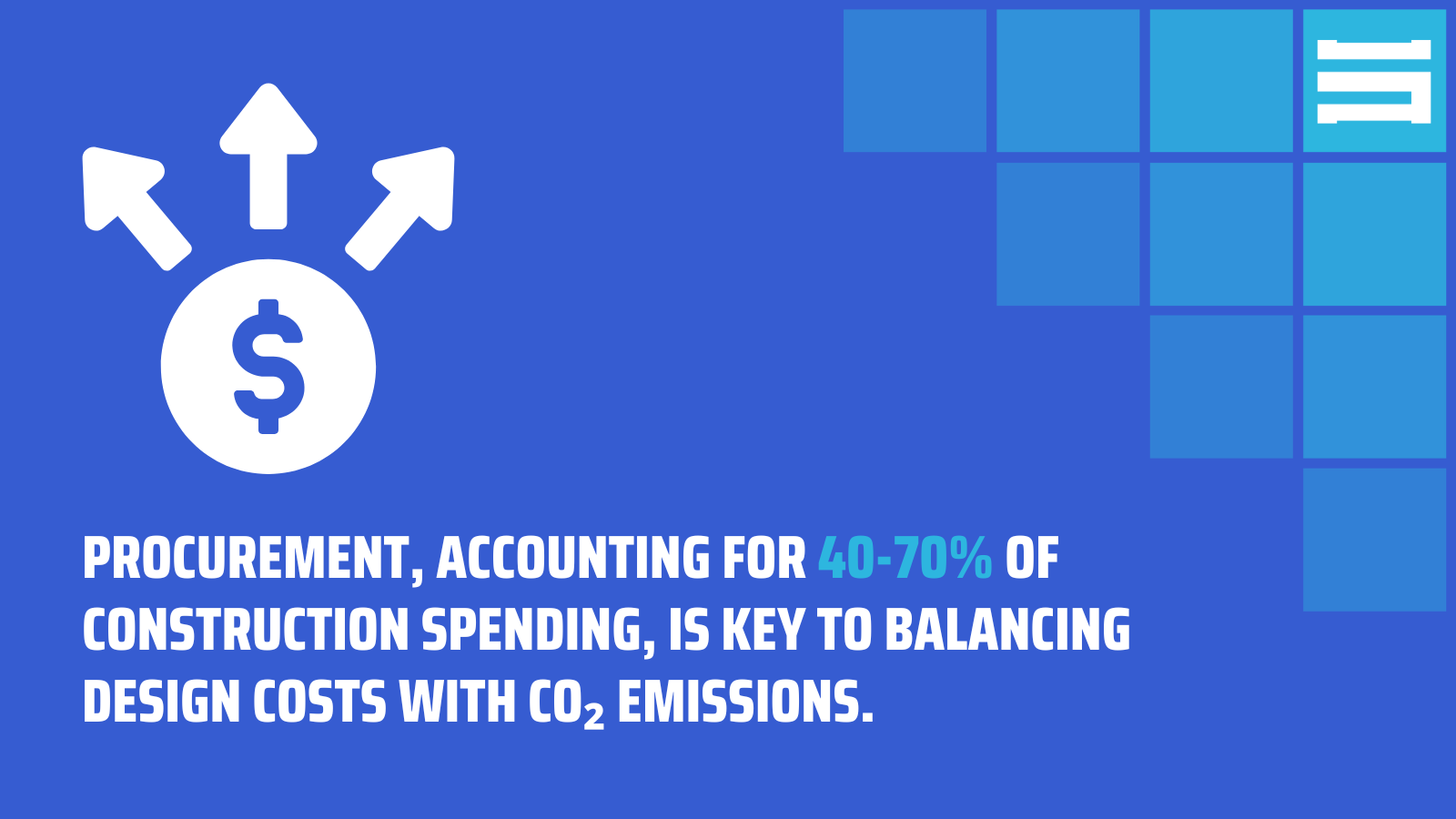
Procurement is an ongoing process that directly influences a project’s financial health. From acquiring materials to managing contracts, every decision made within procurement can affect timelines, quality, and cost control. Here’s why construction procurement is fundamental:
Material Acquisition and Forecasting: Planning for Success
Imagine being halfway through a project and experiencing a sudden spike in steel prices. Without a well-planned procurement strategy, your budget could quickly spiral out of control. Effective procurement starts with planning and estimating the costs of materials, equipment, and labour. Procurement managers forecast future needs, locking in prices through long-term contracts or bulk purchases, shielding the project from sudden market fluctuations.
Modern procurement managers use AI-driven predictive analytics to anticipate changes in material prices. These tools allow procurement teams to stay ahead of market volatility, helping construction procurement services to manage costs more effectively throughout the project lifecycle.
Negotiation with Suppliers: The Art of Getting the Best Deal
Successful negotiation is a core part of procurement. Procurement consultants work to secure favourable terms with suppliers, ensuring high-quality materials at the best price. Developing long-term relationships with reliable suppliers can mitigate risks, such as delivery delays, and reduce costs over time.
Incorporating technologies like blockchain is becoming increasingly popular for enhancing transparency in contracts. Smart contracts ensure that all parties meet their obligations, providing a secure and transparent way to manage payments and deliveries, reducing disputes and project delays.
Strategic Sourcing: More Than Just Buying Materials
Strategic sourcing in construction means much more than simply buying materials at the lowest price. It involves a comprehensive analysis of suppliers based on their track record, pricing structure, reliability, and sustainability practices. Construction procurement consultants evaluate suppliers to ensure long-term value and project success.
Sustainable sourcing is a growing trend in the industry. As companies are pushed to meet sustainability regulations, the use of eco-friendly materials is becoming essential. Sustainable sourcing not only reduces environmental impact but also enhances a company’s reputation and compliance with industry standards.
What are the Key Procurement Methods in Construction?
Choosing the right procurement method is critical to the success of a project. Each method comes with unique implications for cost control and timelines, and selecting the right approach can make a substantial difference in project outcomes. Let’s explore the most common procurement methods used by construction procurement companies:
- Design-Bid-Build (DBB): The traditional method of procurement, DBB separates design and construction. First, the client hires a design team to create the project plans, and then the project is put out to bid. While competitive bidding can reduce costs, this method can lead to communication issues between design and construction teams. This approach works best for projects with well-defined scopes.
- Design-Build (DB): In the design-build method, a single contractor manages both the design and construction phases. This streamlined approach often leads to faster project completion because there is less miscommunication between teams. However, since the contractor assumes greater responsibility, the initial costs may be higher.
- Construction Management (CM): This method involves hiring a construction procurement consultant or construction manager early in the project. The construction manager oversees everything from design to completion, ensuring the project remains on track and within budget. This method is ideal for complex projects where the client wants more involvement and cost control.
What are the Challenges in Construction Procurement Management?
While procurement is vital to construction success, it also presents several unique challenges faced in cost control by cost managers. Here are the key challenges that construction procurement consultants face:
Volatile Material Costs
Construction projects rely on materials like steel, timber, and concrete, which are subject to price fluctuations due to global supply chain disruptions, economic factors, and inflation. The unpredictability of these prices makes it challenging to accurately forecast costs and maintain budgets.
To combat this, procurement experts in the UAE and other regions carefully monitor market trends and implement strategies like price-lock agreements to protect their projects from price volatility.
Supplier Reliability
One of the biggest risks in construction is supplier reliability. Late deliveries or substandard materials can lead to project delays, increased costs, and rework. This risk is particularly significant in large-scale projects, where delays can result in major financial losses. Construction procurement companies in the UAE address this by thoroughly vetting suppliers and establishing strong contracts with clear delivery schedules and penalties for non-compliance.
Complex Supply Chains
Construction projects often involve a web of suppliers, subcontractors, and vendors. Managing these multiple relationships requires careful coordination. Delays in one part of the supply chain can ripple through the entire project, causing significant disruptions. Using modern supply chain management systems helps procurement teams track materials and suppliers in real-time, reducing the likelihood of costly delays.
Sustainable Procurement Management in Construction
The same McKinsey’s report stated that 65% of developers and contractors consider the use of green products important in construction. By utilising advanced tools, procurement managers can identify where eco-friendly solutions might incur a premium and make value-driven decisions that reflect both environmental and financial priorities. In essence, procurement management, when integrated with such tools, becomes a key driver in pushing construction projects towards sustainability without compromising profitability.
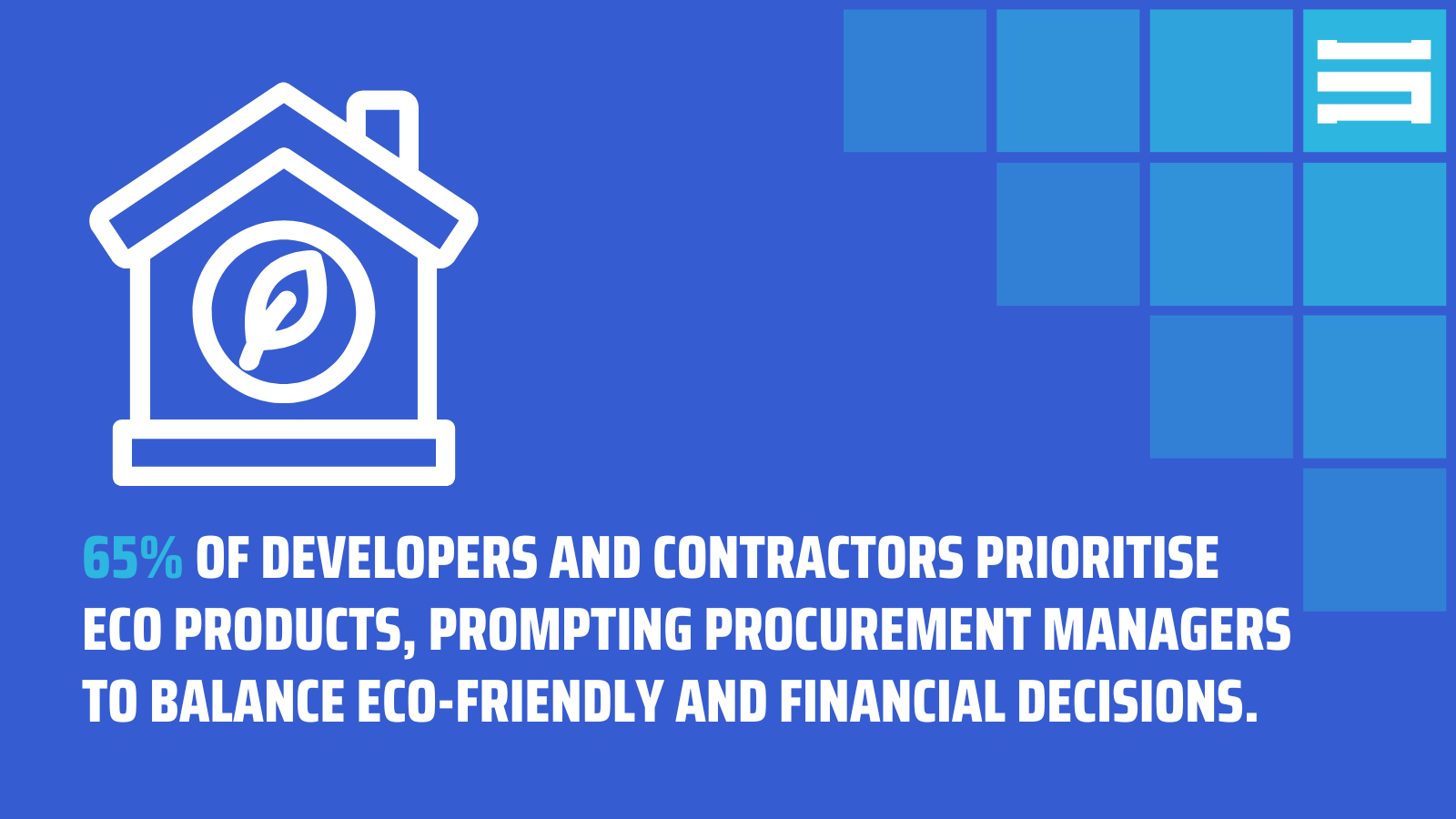
Sustainability is no longer a principle to think about—it’s a business imperative. As environmental regulations tighten, and clients demand greener solutions, sourcing and procurement consultants are increasingly focused on sustainable procurement practices.
Sustainable procurement involves sourcing eco-friendly materials, reducing waste, and minimising environmental impact. Additionally, it enhances the long-term viability of projects by meeting regulatory requirements and reducing future liabilities associated with environmental damage.
While sustainable procurement offers long-term benefits, it can sometimes lead to higher upfront costs. Eco-friendly materials may be more expensive, and finding reliable suppliers who meet both quality and sustainability standards is not always straightforward. Procurement experts in the UAE and across the globe are finding ways to balance these challenges by strategically sourcing sustainable materials without compromising on cost-effectiveness.
Digital Procurement Tools: How They Help
The digital revolution in procurement is transforming the way construction procurement services operate. Today, procurement consultants in Dubai and beyond use various digital tools to improve efficiency, streamline processes, and enhance decision-making.
Digital tools automate many manual processes, such as purchase orders and invoice approvals, reducing errors and speeding up procurement activities. By providing real-time insights into budgets, supplier performance, and material tracking, these tools allow procurement teams to make data-driven decisions, ensuring projects stay on budget and on schedule.
Procurement transformation consultants in the UAE are increasingly adopting these digital tools to stay competitive in the global market, improving their ability to manage complex projects efficiently.
What are the Benefits of Construction Procurement Management?
When managed effectively, construction procurement offers a range of benefits that directly contribute to the success of a project:
1. Cost Savings
Strategically sourcing materials, negotiating bulk purchases, and locking in prices through contracts allow procurement managers to secure cost savings. Engineering procurement and construction companies benefit from long-term financial planning and fewer surprises.
2. Improved Efficiency
A clear and well-executed procurement strategy streamlines the acquisition of materials, ensuring deliveries are timed to align with the project schedule. This reduces costly delays and keeps projects moving forward.
3. Stronger Supplier Relationships
Long-term partnerships with trusted suppliers lead to more reliable deliveries, better material quality, and better overall project outcomes. This reduces the likelihood of delays and ensures the project meets quality standards.
4. Risk Mitigation
Procurement managers who proactively address risks—such as material price fluctuations and supply chain disruptions—can prevent these issues from derailing the project. Effective risk management ensures smoother project execution.
Conclusion
In construction, procurement is much more than just buying materials—it’s a critical strategy that impacts every facet of a project. Whether it's managing costs, ensuring supplier reliability, or incorporating sustainable practices, mastering procurement is essential to delivering successful projects.
At Stonehaven, we offer expert construction procurement services that drive efficiency and ensure project success. Our procurement consultants in Dubai and across the UAE work with clients to optimise sourcing, manage suppliers, and implement digital tools for procurement transformation. Whether you need help with engineering procurement or construction management procurement in the UAE, we are here to support your project’s success.
About us
Stonehaven is a trusted project management company and construction consultant based in Dubai, offering comprehensive construction management services across the UAE with offices located in Dubai, UK and Sri Lanka. As one of the leading project management companies in Dubai, we manage projects from inception to completion, ensuring quality, efficiency, and cost-effectiveness at every stage.
We deliver value through expert project management consultancy services, tailored to meet the unique needs of each client. Our core services include Cost Management, Project Management, Construction Supervision, Engineering Support, Design Support, and Marketing & Communications. Whether you’re looking for construction consultants or project managers in the UAE and wider GCC region, Stonehaven is your trusted partner for achieving excellence in your next project.
Stonehaven is a leader in construction procurement consultant services in the UAE. We specialise in sourcing and procurement transformation for efficient project execution. Whether you're looking for construction procurement companies in the UAE, assistance with engineering procurement, or procurement transformation consulting, our experienced team can guide you.
Get in touch today to see how Stonehaven can help you optimise your procurement strategy and achieve your project goals.






